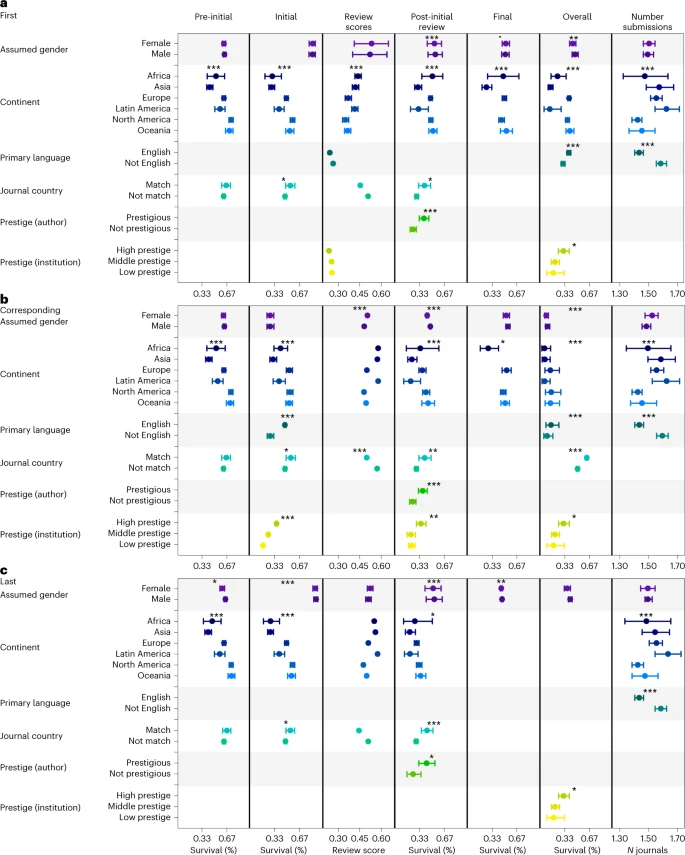Phys.org March 13, 2023
An international team of researchers in the US ( Michigan State University, University of Michigan, University of Minnesota, Cornell University) used peer review data from 312,740 biological sciences manuscripts across 31 studies to (1) examine evidence for differential peer review outcomes based on author demographics, (2) evaluate the efficacy of solutions to reduce bias and (3) describe the current landscape of peer review policies for 541 ecology and evolution journals. They found notably worse review outcomes (for example, lower overall acceptance rates) for authors whose institutional affiliations were in Asia, for authors whose country’s primary language is not English and in countries with relatively low Human Development Indices. There were few data evaluating efficacy of interventions outside of reducing gender bias through double-blind review or diversifying reviewer/editorial boards. Despite evidence for review outcome gaps based on author demographics, few journals currently implement policies intended to mitigate bias. The lack of demographic equity signals an urgent need to better understand and implement evidence-based bias mitigation strategies…read more. TECHNICAL ARTICLE

Author demographics predict review outcomes across the peer review process. Credit: Nature Ecology & Evolution (2023)